Whenever I travel to a new country I try to learn a few basic words and phrases in the local language (if it’s not English). While it’s not always needed in places where English is widely-spoken, I always find that locals appreciate you at least making a bit of an effort to be able to greet them in their own native tongue, which often leads to them being more friendly and helpful.
If you’re heading to the Netherlands, you can usually get by without knowing any Dutch, particularly if you’ll mainly be visiting big cities like Amsterdam, Rotterdam, The Hague or Utrecht. The Dutch have the highest English-language proficiency of any country in Europe where English is not the first language, so most of the population speaks excellent English. They often like to say they only speak ‘a bit’ but usually, as soon as they start talking, they’re basically fluent! But they also do appreciate it when you make an effort and learn some words or phrases, even if it’s just the polite way to ask, “do you speak English?’
So with that in mind, I’ve put together this guide to basic Dutch words and phrases that will help you during a short trip. Whether you want to politely ask someone for help or make sure you understand what the street signs are saying, this guide is for you! You can even download a free cheat sheet to save to your phone or print out for your trip at the end of the post.
The Basics
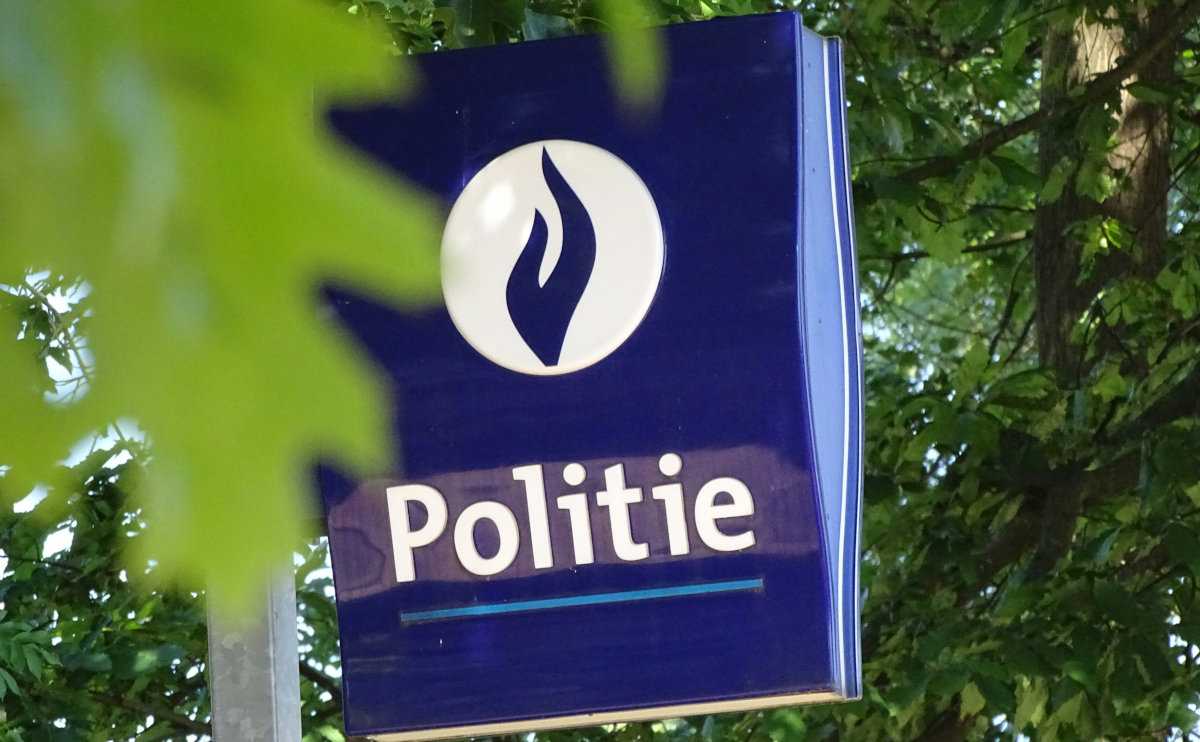
Here are some of the most basic words and phrases for speaking to locals in the Netherlands, or if you’re looking for a toilet or police station. While you can generally start speaking English in the big cities, particularly in shops, cafés or restaurants, they do appreciate it if you start off in Dutch.
Hello: Hallo/Hoi – The Dutch version of hello sounds a bit more like hallow, but you may also hear or use a simple hoi (pronounced hoy) to mean hi.
Good morning: Goedemorgen – Honestly, I’ve found that Dutch people tend to say good morning/afternoon/evening when they greet you, rather than just hello. These three following greetings are pronounced with a softer g at the beginning (and in the middle of goedemorgen) than how the similar word is pronounced in German. So it sounds a bit like ghood-uh-morgh-en.
Good afternoon: Goedemiddag – Remember your soft g’s here too, it sounds like ghood-uh-mid-ugh.
Good evening: Goedenavond – And for evening, the pronounciation is like ghood-en-arv-ond.
Goodbye: Tot ziens or doei – Both of these words mean goodbye, although tot ziens (which sounds like tot zeens) is maybe slightly more formal than doei, which usually sounds a bit like doo-ee!
Please/Here you go: Alstublieft (formal)/Alsjeblieft (informal) – If you’re asking for something, you generally put alstublieft/alsjeblieft on the end to make it polite, although the difference between the two is just how formal you are being. Alstublieft is pronounced like als-too-bleeft and alsjeblieft like als-ye-bleeft. Confusingly, Dutch people will often say alstublieft (or sometimes just alstu) as they hand you something, like your food at a restauarant, so then it’s a kind of a polite way to say ‘here you are.’
Thank you: Dank u wel (formal)/Dank je wel (informal) – And when someone gives you something and you want to say thank you then it’s dank u wel (dunk-oo-wel) or dank je wel (dunk-ye-wel). And if you’re really informal, you can also just say bedankt (buh-dunkt) which means thanks!
You’re welcome: Graag gedaan – Then if you want to say something along the lines of ‘you’re welcome’ after someone thanks you for something, you can say graag gedaan (grahrg guh-darn).
Yes/No: Ja/Nee – Pretty straightforward, ja sounds like ya and nee like nay.
Excuse me: Sorry – While some language apps might tell you that excuseer mij is excuse me, like if you’re trying to pass by someone, it’s much more common for Dutch people to just say sorry, although they do tend to pronounce the r’s a bit like w’s. But if you’re trying to get through a crowd or even bump into someone, just say sorry!
Look out!/Be careful!: Pas op!/Let op! – Just in case this ever gets yelled at you, or you see it on a sign, pas op and let op both just mean watch out, look out, be careful. If you’re walking in a bike lane you might hear this, along with aggressive bell ringing. (And if someone yells ‘rot op’ at you then they are being very rude and telling you to piss off!)
Police: Politie – If you need to find the police, look for the politie sign at the beginning of this section. And just as an FYI, if you ever need to call emergency services in the Netherlands, the number to dial is 112. You can usually tell the operator you speak English and then say which emergency service you need.
Toilet/Toilets: Toilet/Toiletten – And if you’re seeking a bathroom, they’re simply called toilet, or toiletten in the plural. Although sometimes they also use WC in the Netherlands, which is pronounced like way-see. And usually it’s pretty easy to know which toilet is for men or women, but occasionally it might be written in Dutch, so then dames means women and heren means gentlemen.
Sorry, I don’t speak Dutch: Sorry, ik spreek geen Nederlands – My best tip for travelling in the Netherlands though is to master this (and the next) little phrase. Any time I need to ask something in English, I always start by saying this phrase and I have had Dutch people tell me that they really appreciate me saying this (and the next line) rather than just immediately speaking English. This phrase sounds like, sorry, ik sprayk ghayn Nayderlunds.
Do you speak English?: Spreekt u Engels? – And usually, after you apologise for not speaking Dutch, ask them politely if they speak English like this, which sounds like spraykt-oo Eng-els. In ten years, I have only ever had one Dutch person say no, and if they do that’s usually because they don’t want to speak English (or don’t feel confident in their skills). But if you can ask in Dutch, they tend to be much more receptive to whatever you need and switch. Of course, many times they have switched to English as soon as they heard me speak in English to Dennis so you might not need this, it’s just a nice little thing to know.
Reading Menus
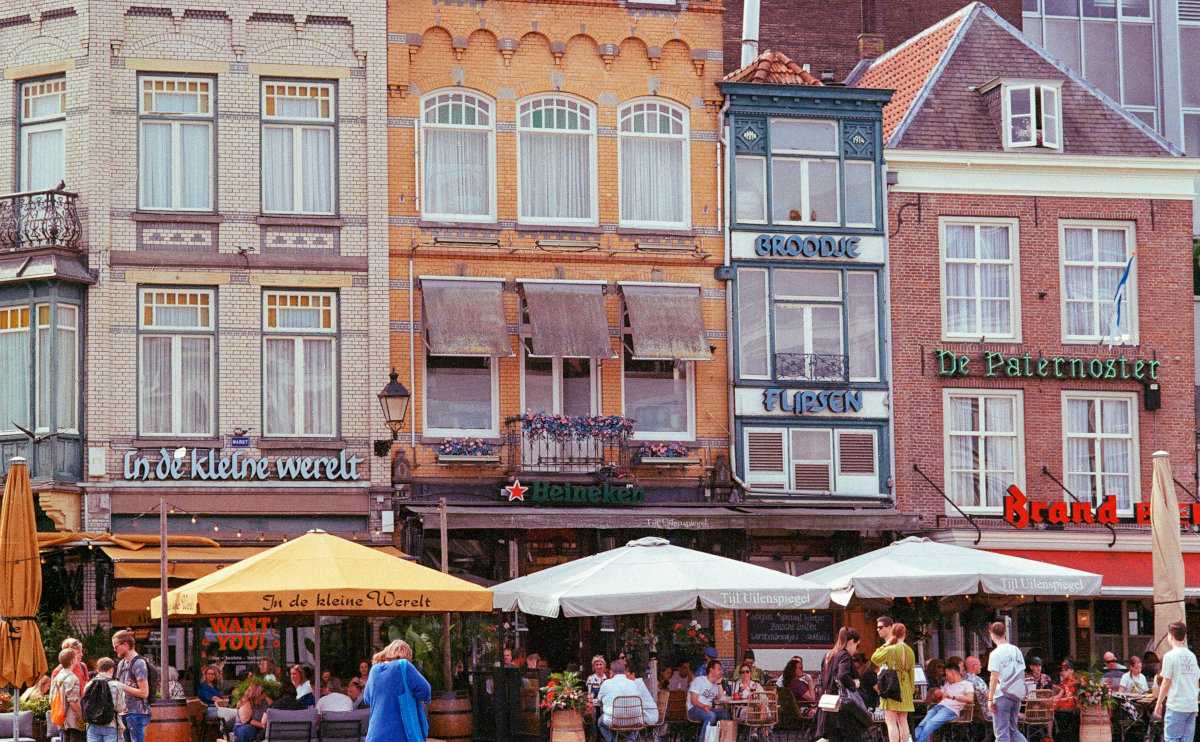
This might seem like overkill since we pretty much all have Google Translate on our phones these days, but even in big cities I’ve found that they don’t always have English menus at cafés, bars or restaurants. Often they do, but just in case you wanted to know some common words beforehand, here you go.
Voorgerechten: Entrees/appetisers – Pretty simple, gerechten means dishes (as in meals, rather than plates) and voor is before, so these are the entrees, appetisers or small plates you might have before a main meal.
Hoofdgerechten: Mains – Hoofd means head, and these are the main dishes, like the head of the meal I guess!
Bijgerechten: Side dishes – Then you have side dishes, usually fries, vegetables or salad to have with your main meal.
Broodjes: Sandwiches – The Dutch word for bread is brood (pronounced brode, not with the double ooh sound we use in English) and broodjes are sandwiches. Sometimes they also use boterham for sandwich, but I’ve noticed on menus it’s usually broodjes, I think because these can sometimes also be open-faced sandwiches. Broodjes can also include rolls and things too, not just plain sandwiches.
Toasted sandwich: Tosti – And if you see tosti’s on the menu (the Dutch do actually use apostrophes for many plural words, that is not a mistake) then you’re getting a toasted sandwich!
Soep: Soup -Again, pretty simple, and pronounced basically the same as in English.
Cheese: Kaas – Cheese is pronounced like karse in Dutch, and you’ll often see “ham en kaas” tosti on a menu.
Chicken: Kip – Chicken is called kip, plus beef is biefstuk or rundvlees, and pork is varkensvlees.
Beer: Bier – Another nice and easy one since it’s so similar to the English word.
Ice cream: Ijs – As is the word for ice-cream, which is pronounced just like ice.
Common Signs
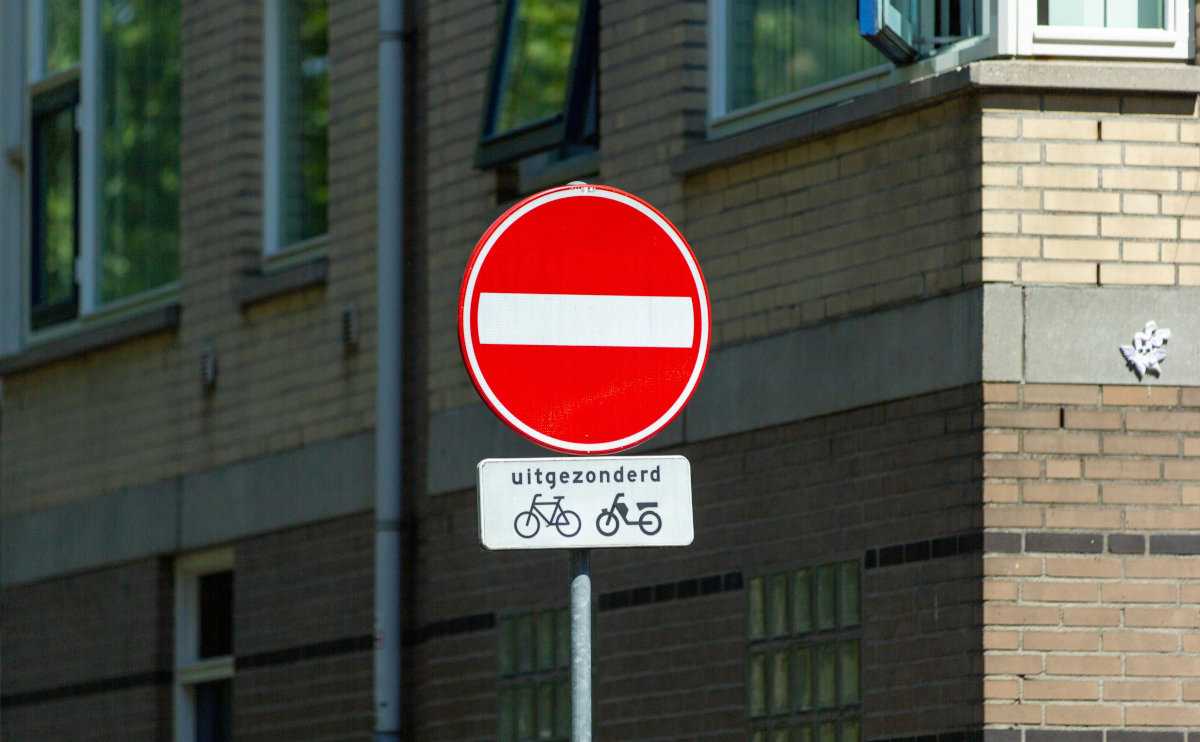
Similar to last section, this section might not be needed on your trip, but it also might come in handy if you’re out and about and see a sign you’re not sure about.
Open/Closed: Open/Gesloten – Luckily, open is the same, and gesloten just means that a shop or something is closed.
Entry/Exit: Toegang/Uitgang – If you’re looking for entry and exit signs in a building, try to remember that uit is out and toe (pronounced like too) is like going to the place (or in)!
Forbidden: Verboden – If a sign says something is verboden, that means it’s forbidden, usually in terms of entry or parking.
No Entry: Geen Toegang (also verboden toegang) – Similar to verboden toegang is geen toegang, which just means no entry.
No Exit: Geen Uitgang – And geen uitgang means no exit.
Excepted: Uitgezonderd – In some cases, you might see a sign like in the photo above, which means no entry (the red and white part) but the little bit beneath that says uitgezonderd with a picture of bikes means that no cars or trucks can go in there, but cyclists and scooters are allowed.
Transport Words
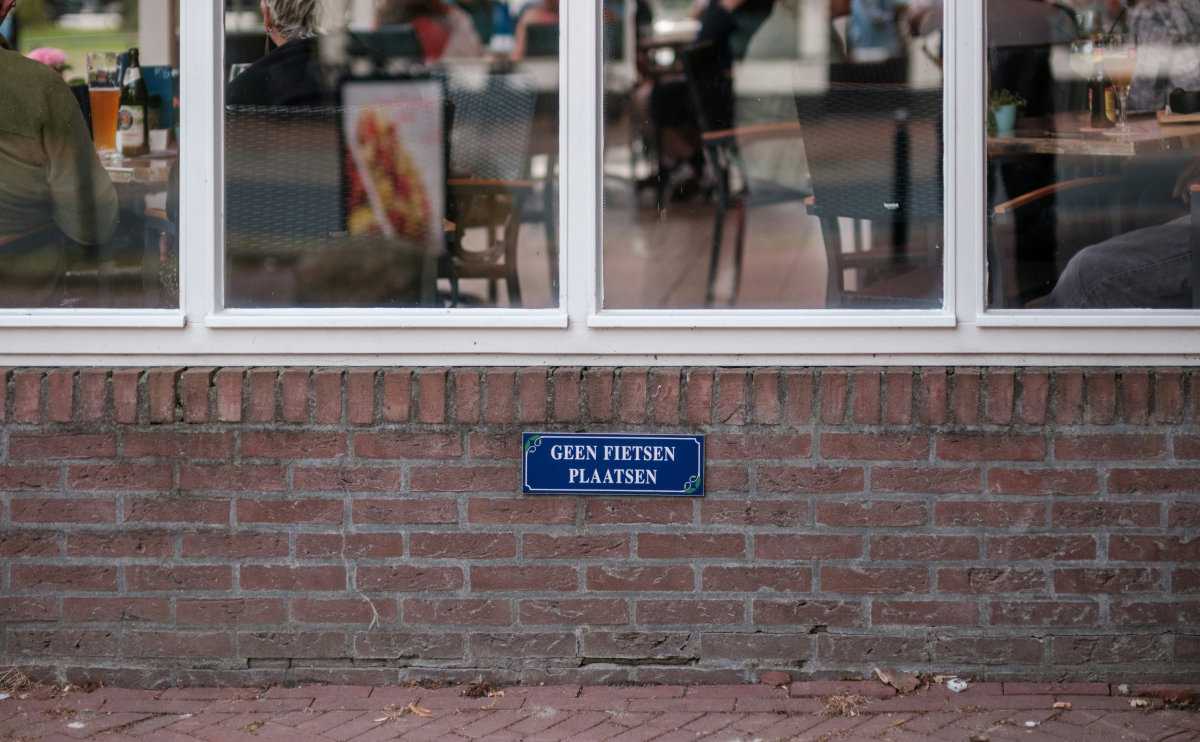
Since getting around is a major part of any kind of travel, here are some specific words and phrases related to transport.
Train Station: Treinstation – Another nice and simple, almost the same as English one! The Dutch tend to pronounce station more like stat-chion though.
Port: Haven – Any haven is a port for ships.
Airport: Luchthaven – And an airport is also a type of port, so it’s called a lucht (air) haven (port)!
Parking/Car park: Parkeren/Parkeerplats – If you’re looking for somewhere to park a car, look out for parkeerplats or parkeren signs (and also be aware of geen parkeren if you’re not allowed to park somewhere).
No Parking: Parkeren Verboden – As I mentioned before, verboden is forbidden so if you see it combined with parkeren, it’s another way of saying no parking.
Bicycles: Fietsen (plural)/Fiets (singular) – Bicycles are called fiets or fietsen in Dutch, so you may see signs with fietsen parkeren where you can park a bike.
No bike parking: Geen fietsen plaatsen – But if you see a sign saying geen fietsen plaatsen, that also means don’t park/lean your bike here. Often this sign is on shop windows, although lots of people often ignore them, just don’t be that person…
Other Random Words!
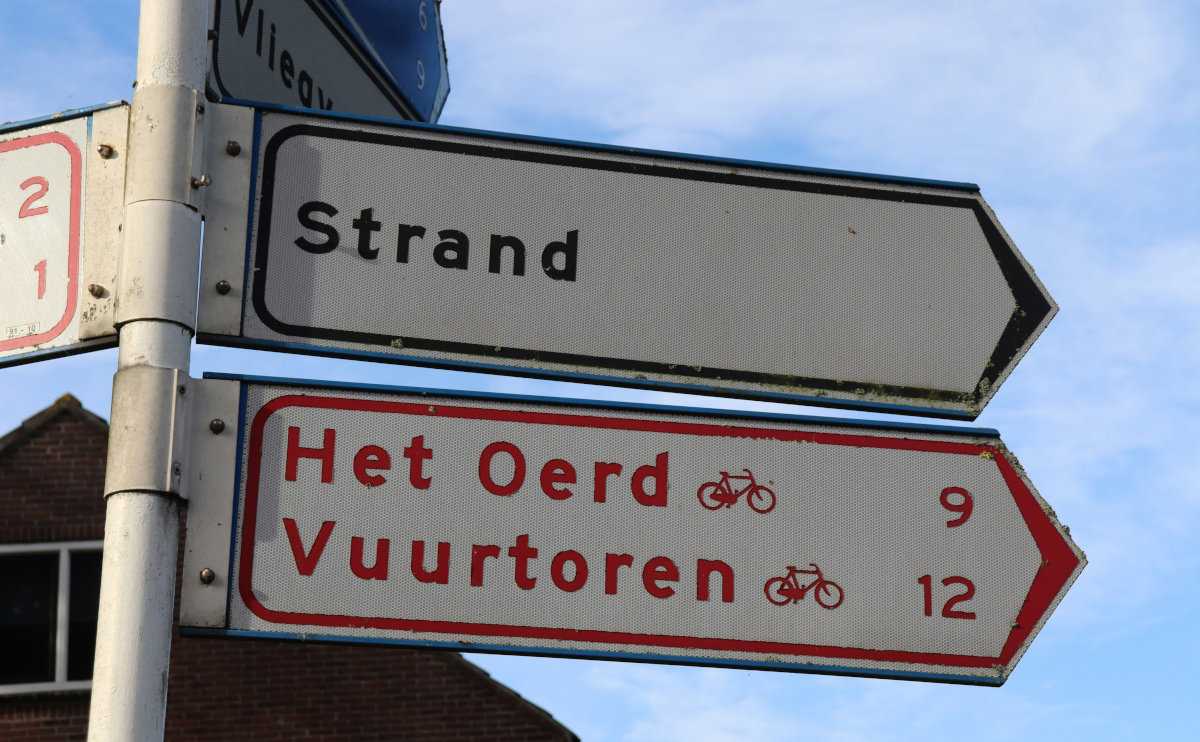
And finally, just for fun, here are some other words that you might encounter, particularly as a tourist.
Tulips: Tulpen – If you’re looking for pretty tulips, they’re called tulpen in Dutch! And if you see a sign for a pluktuin, that means a picking garden where you can pick your own fresh flowers (usually for a fee, of course).
Clogs: Klompen – Clogs are klompen, which I love, since you do basically clomp around in them.
Beach: Strand – A beach is called a strand, so in the sign above, you would follow the arrow to reach the beach.
City: Stad – Cities are called a stad, or steden in the plural.
Bridge: Brug – Bridges are called brug, or bruggen in the plural. If you’re walking across bridges in Amsterdam you’ll see that lots of them have ‘somethingbrug’ written on the rails and the famous ‘skinny bridge’ is Magere Brug, which technically translates to lean (or skim if it’s magere melk) but is still known as the skinny bridge.
Lighthouse: Vuurtoren – A lighthouse is a vuurtoren (toren means tower in Dutch).
Library: Bibliotheek – A library is called a bibliotheek, pronounced like biblio-take. Check out my guide to the best libraries and bookshops in Amsterdam here, if you’re interested.
Chemist: Apotheek – If you need to go to a chemist for prescription medications, you want an apotheek, pronounced apo-take. Just as an FYI, if you’re just looking for over-the-counter stuff like painkillers, cough syrup, band-aids, shower gel, makeup, etc., (things you don’t need a prescription for) head to a shop called Kruidvaat. In Australia, chemists usually have a section to pick up prescription medication and the rest of the shop has other stuff to buy without a prescription, but in the Netherlands they’re completely separate.
No smoking: Rookvrij or Niet Roken – For any smokers reading this, be aware that signs saying rookvrij or niet roken means the area is either smoke-free or there’s no smoking. There’ll often just be a symbol as well, but in case there isn’t, you can’t smoke if you see those words.
Gratis: Free! – I wouldn’t want you to miss out on anything that’s free, so just know that if you see a sign saying ‘gratis’ then you can take whatever it is for free!
Pin Me!
Would you add any more Dutch words or phrases to this guide? Let me know in the comments or pin one of these if you’re travelling to the Netherlands soon!
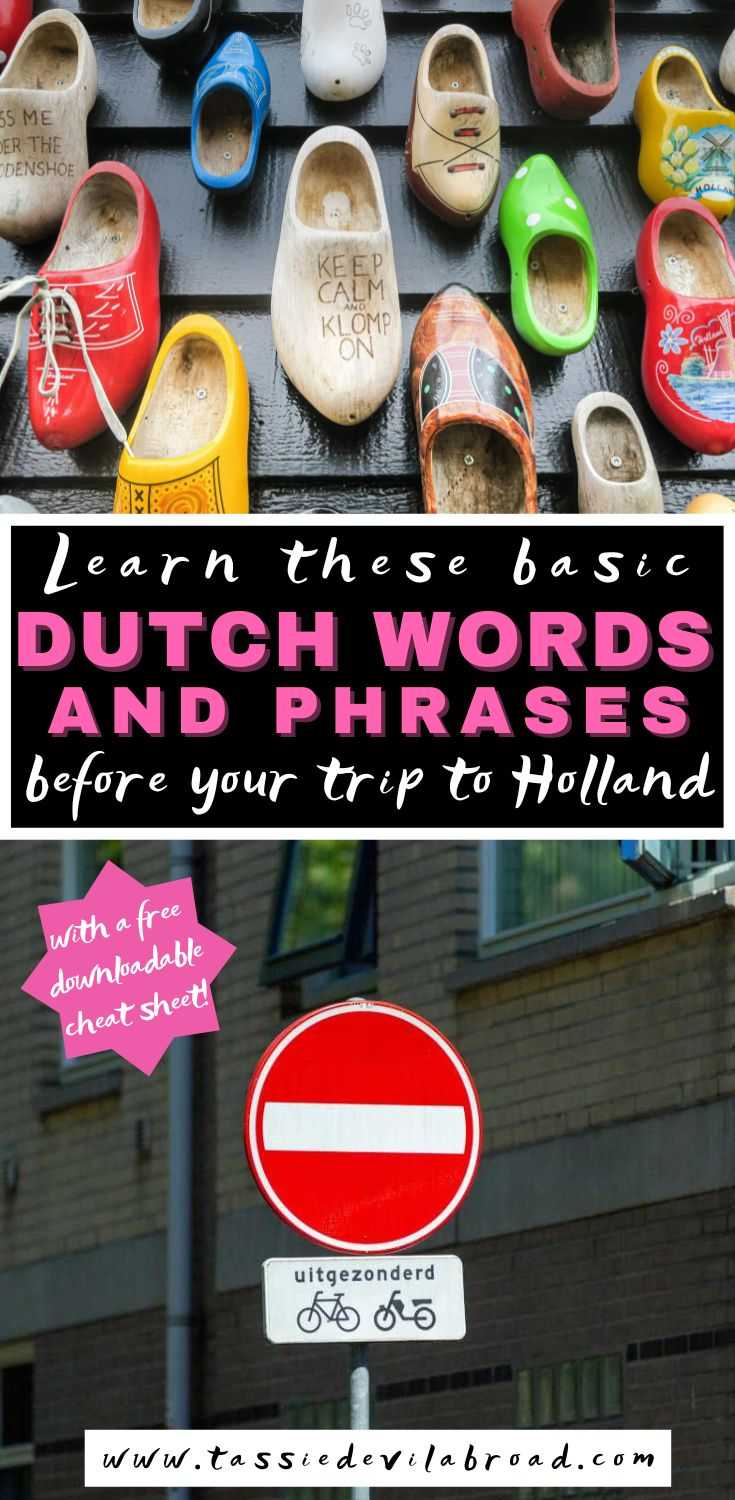
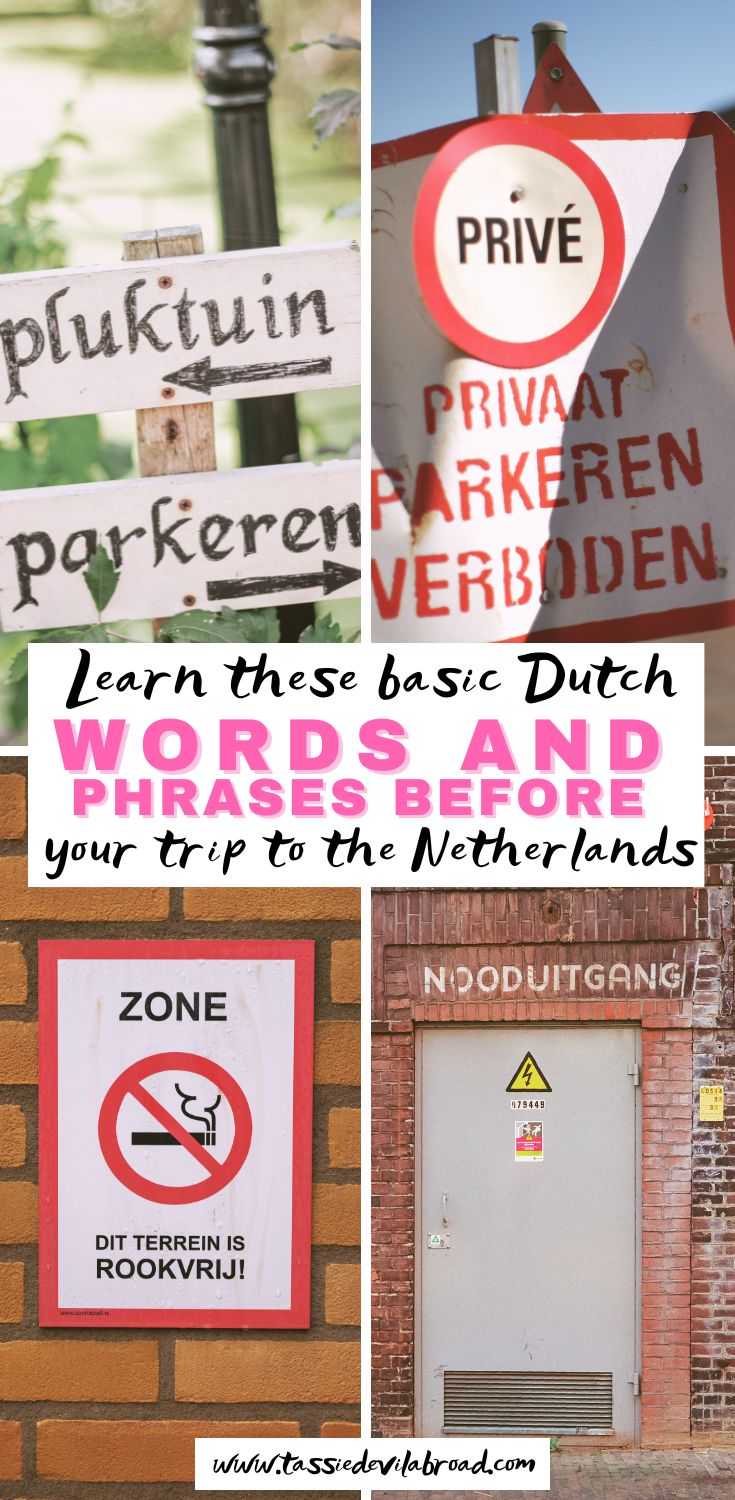
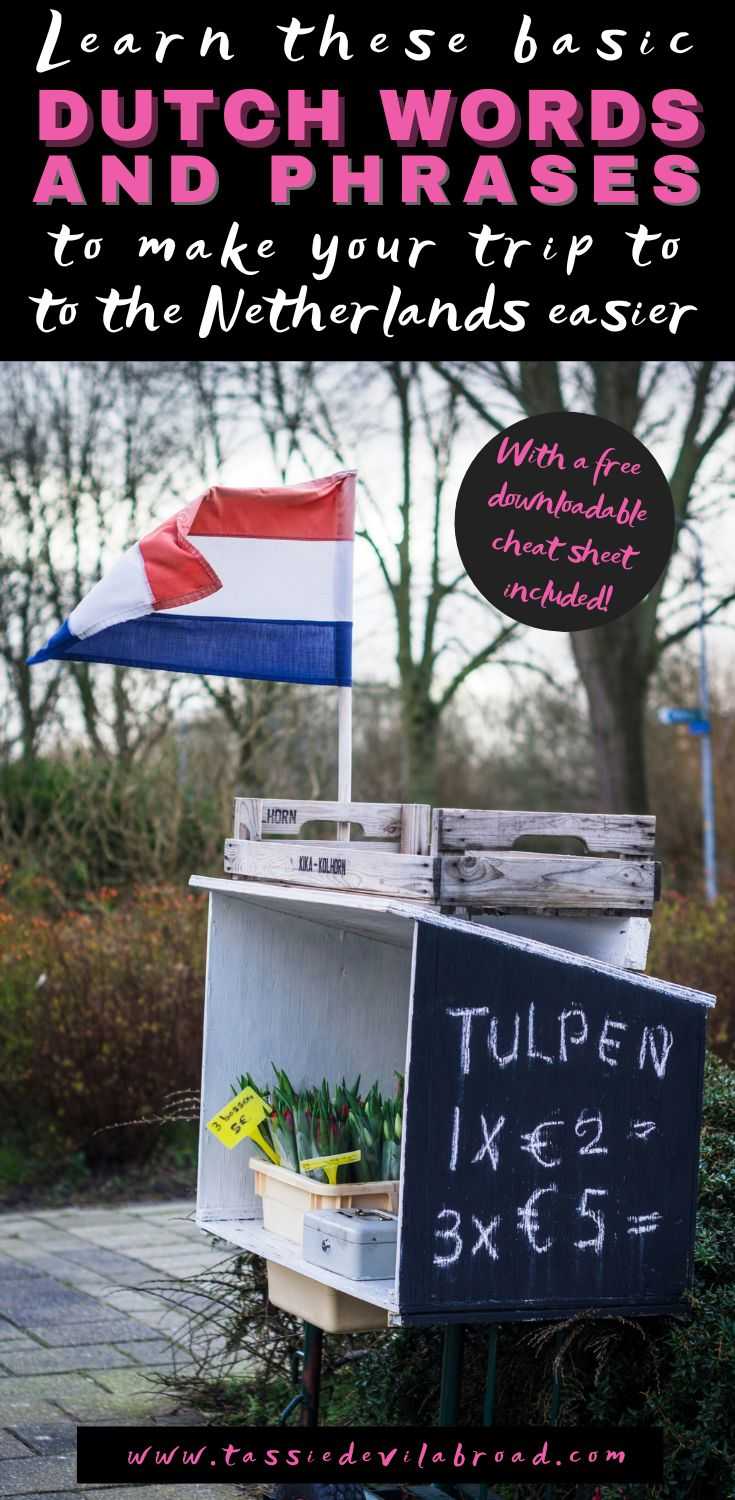
Get Your Gratis Cheat Sheet!
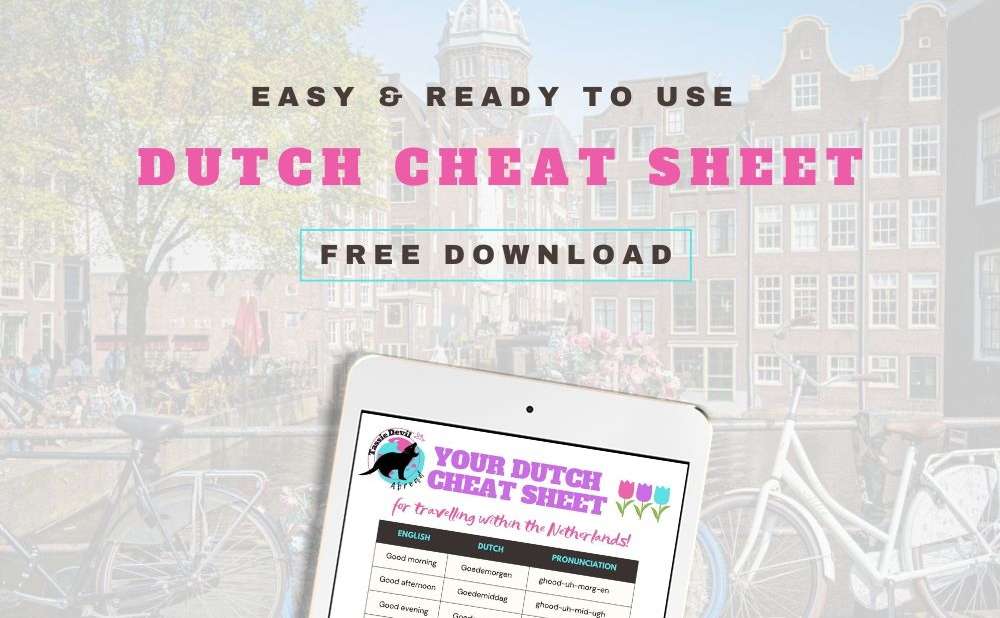
Want a handy little cheat sheet of the most common Dutch words and phrases that will help you on your trip? Sign up to my mailing list below and I’ll email it to you so that you can save it to your phone or even print it out and refer back to it during your travels.
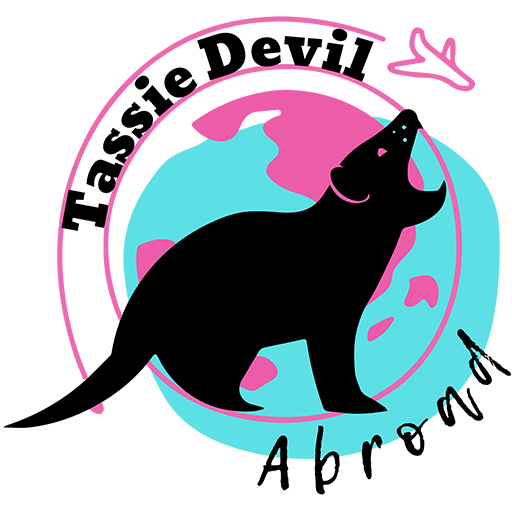
Leave a Reply